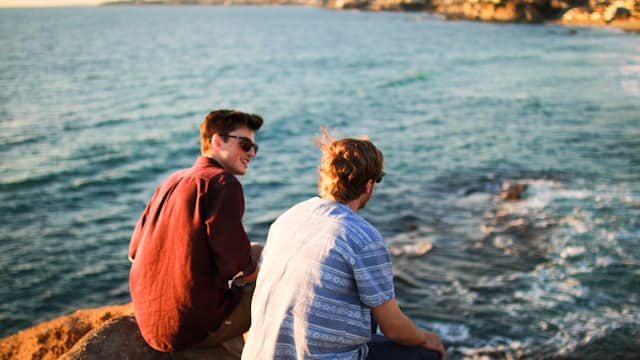
Men jokes
What's the hardest thing when working with the severely mentally handicapped?
My dick.
What do you call a cab for black men?
A cop car.
Why do gay men hate periods? Because they per Collins.
I’d make a joke about prostitutes and women sleeping with multiple men, but it would just be whore-ible.
Why are Black women dating white men?
So their kids don’t have to worry about not meeting their father.
What do you call a line of men waiting to get haircuts? A barber-queue.
How do you break up a fight between two gay men?
Say, "Can you get straight to the point?"
How do you trick a homophobic heterosexual male that is a Roman Catholic priest into using the glory hole inside the men's restroom at a gay bar?
Tell him that it is a confessional booth.
What do you call it when a bunch of guys who look the same have an orgy?
A doppelgangbang.
Manly men go to strip clubs. JD Vance goes to IKEA.
Two Italian men get on a bus.
They sit down and engage in an animated conversation. They speak with an Italian accent.
The lady sitting behind them ignores them at first, but her attention is galvanized when she hears one of the men say the following:
"Emma come first.
Den I come.
Den two asses come together.
I come once-a-more.
Two asses, they come together again.
I come again and pee twice.
Then I come one lasta time."
"You foul-mouthed swine," retorted the lady indignantly. "In this country we don't talk about our sex lives in public!"
"Hey, coola down lady," said the man. "Who talkin' abouta sexa? I'm a justa tellin' my frienda how to spella 'Mississippi'."
Why do Republican men hate transgender people?
Because they lost a dick-measuring contest to a ladyboy in Thailand!
What's the difference between women and men?
Men have rights.
Why do physically disabled gay men like performing blowjobs on well-endowed, abled-bodied gay men?
Because physically disabled gay men prefer eating pepperoni than eating sausage links for dinner 🍽
Bill Clinton, George W. Bush, and George Washington are on a sinking ship.
As the boat sinks, George Washington heroically shouts: “Save the women!”
George W. Bush hysterically hollers: “Screw the women!”
Bill Clinton asks excitedly: “Do we have time?”
Why are black men's eyes always red after sex?
From the mace.
What do gay men and drug dealers have in common?
They both get a lot of crack.
Why is it that skinny men love fat women?
Because we need warmth in the winter and shade in the summer.
"I got that dawg in me," said the Asian men after lunch.
What's the difference between yo mama and German men?
The balls... German men don't have them.